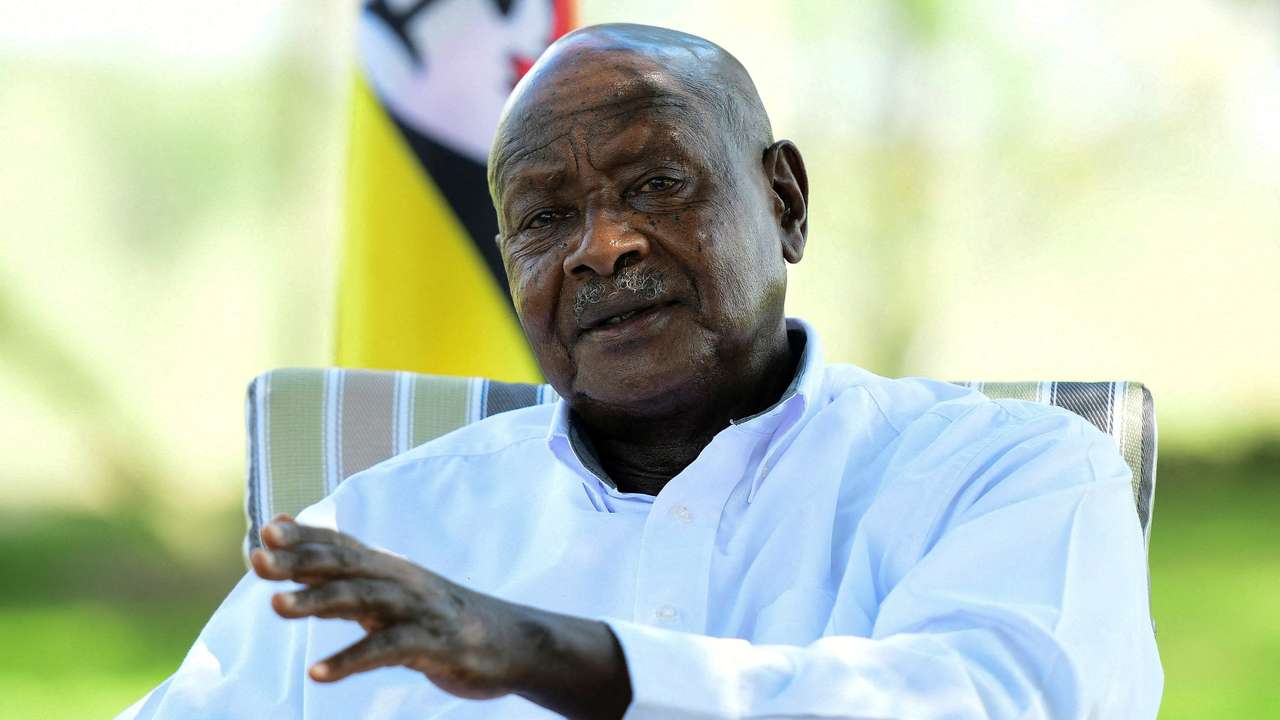Uganda’s Yoweri Museveni: The politics of keeping power in the family

In the early 2000s, Yoweri Museveni made history as the first African president to appoint his wife to the Cabinet. Since assuming power in 1986, Museveni has maintained a dominant presence in Ugandan politics.
However, what distinguishes his tenure is not only its longevity but the practice of consolidating power within his family.
Museveni, who has been at Uganda's helm since 1986, is currently serving his sixth term. For a quarter of Uganda's population under the age of 35, he is the only president they have known.
Prior to his wife's appointment, his brother, Salim Saleh, held the position of state minister for finance but was later demoted to senior presidential adviser, sparking criticism of nepotism. Despite objections, Saleh's demotion merely shifted him to another government position, justified by his perceived role in fighting for Ugandan "emancipation."
In 2016, his wife, Janet Museveni, already a Cabinet member, was appointed Minister of Education and Sports, raising questions about why she was given a “two-in-one” role. Reports also highlighted the possibility of Museveni preparing Janet to take over when he finally bows out.
In March 2024, Museveni appointed his son, Muhoozi Kainerugaba, as head of the military. Prior to this appointment, Muhoozi served as the Commander of Uganda’s land forces. However, following controversial social media posts expressing support for Vladimir Putin and threatening to invade neighbouring Kenya, Muhoozi was removed from office in 2022.

“The majority of mankind (that are non-white) support Russia’s stand in Ukraine,” Reuters quoted the post he made on Social media platform X.
There has also been speculation that he is grooming Muhoozi to succeed him, an idea Aljazeera reported to be infamously known in the country as the “Muhoozi project”.
Recent reports suggest Museveni appointed his daughter, Natasha Museveni, as Governor of the Central Bank of Uganda, prompting scrutiny of her qualifications and ethical considerations. However, these reports lack official confirmation from the Ugandan government.
The phenomenon of familial political succession extends beyond Uganda, with seven African countries witnessing both father and son (or brother) ascend to power. This trend includes Botswana, Kenya, the Democratic Republic of the Congo (DRC), Gabon, Togo, Mauritius, and Malawi.
In Togo, President Faure Gnassingbe, son and immediate successor of Togo's fifth president, Gnassingbé Eyadema, has maintained power for nearly two decades. By the next reelection in 2025, his family would have ruled for over 50 years
Similarly, Equatorial Guinea's President Teodoro Obiang assumed power after deposing his uncle Francisco Macías Nguema, the country's first president, in 1979. He positioned his son Teodoro Nguema Obiang Mangue, as vice-president, favourably enough to succeed him, the BBC reported.
The recurrent question arises, Are these appointments merit-based or manifestations of outright nepotism by African leaders?